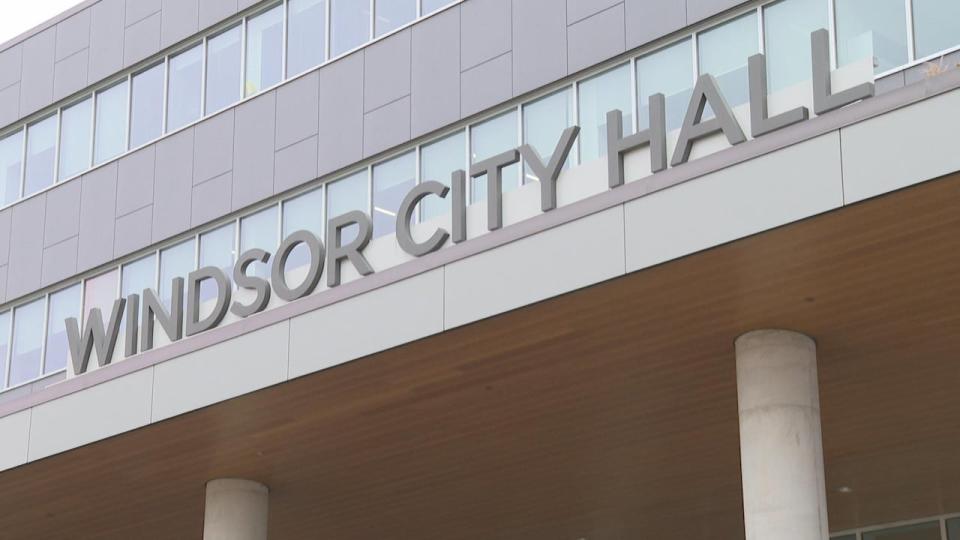As the high cost of housing continues to create increased stress for families, forcing some people into homelessness, the County of Essex and City of Windsor are in the midst of a collaboration to develop an affordable housing strategy.
In June, the Ontario government released its definitions of affordable housing for every municipality in the province.
The definition is broken down by housing type and location across the entire province.
In Windsor, a detached house would need to be sold at $301,800 for it to be considered an affordable home. The province lists the affordable monthly rent of a bachelor unit at $841, a one-bedroom unit at $1,042, a two-bedroom unit at $1,227 and a three-bedroom unit at $1,273.
Keith Whittal, the city’s executive director of housing, said there are “a lot of layers” to what’s now called affordable housing.
“One of them would be non-market housing … the need for housing that would require subsidy or people just need a little bit of income, or maybe it’s tied to a certain amount of income you make and that’s what you pay in rent,” Whittal told CBC’s Windsor Morning.
“But you also have what I would call ‘attainable’ or affordable housing in the sense of ownership. So, you see a lot [of people] in the community saying, ‘Hey single-family homes are $500,000, that’s not affordable.'”

This week the City of Windsor is hosting a series of meetings to hear from residents what they would like to see included in the affordable housing strategy. (Jennifer La Grassa/CBC)
Whittal said hearing these concerns from the community serves as an impetus to look at what more can be done by the city in terms of volume and getting more homes built.
According to Whittal, the city has seen the cost of building affordable housing “increase significantly.”
Using the Meadowbrook condominium complex in the city’s east end — which started in 2019 — as an example, he said it had a price tag of approximately $300,000 per unit.
“Right now, if you have to acquire land and [are] potentially building, you’re almost getting close to $400,000 or $500,000 a unit,” he said.
More than 900 people experiencing homelessness
Jeanie Diamond-Francis, manager of community services for the County of Essex, said the need for affordable housing in the county is “consistently” growing.
“The latest numbers of people experiencing homelessness in the region are over 900, and that is only capturing people that are experiencing homelessness,” Diamond-Francis told CBC News.
“It does not capture the amount of people that are living with family, that are couch-surfing, or that are young professionals unable to purchase housing due to affordability issues.”


A tent is shown at a Windsor, Ont., encampment. (Michael Evans/CBC)
Diamond-Francis is hopeful the collaboration between city and county will lead to “a clear framework and road map” on how to start addressing the need in the county, whether it identifies specific land sites for developers, or shovel-ready projects “that we can then advocate for funding to start building those affordable housing units.”
Additionally, she said the hope is that “this strategy is going to really provide us with a framework and a long term plan on perhaps things we can do differently as a region to be better able to meet the needs of our community.”
‘It’s utterly unaffordable’
Frazier Fathers, a Windsor-based researcher, says data from Canada Mortgage and Housing corporation (CMHC) shows that between 2006 and 2022, housing prices in Windsor have increased 174 per cent, while median after-tax income has declined by 10 per cent over the same period.
“I think it’s quickly becoming a community of haves and have nots,” Fathers told CBC News.
“The median after tax household income, obviously certain households make a lot more than that median, but 50 per cent of households make less than that median. So, for those who are on the top end of the spectrum, the top 10, 20, or 30 per cent, housing is more expensive, but still probably affordable.
“The ratio of the mean absorption cost to the median income is 16.19 times, so if you multiply the median income by 16.5, that equals the housing costs. It’s utterly unaffordable even for that middle number, that median person, to afford a house,” Fathers added.
‘An economic driver’
Meanwhile, Whittal said it “makes a lot of sense” for the city and the county to be working on developing the strategy together.
“We have people moving into the region and if the region has affordable housing solutions throughout, it’s just an economic driver,” Whittal said.
“From our perspective, whatever we can do to build housing throughout the city and the county, it’s just going to obviously help everyone in the region.”
This week the city is hosting a series of meetings to hear from residents what they would like to see included in the affordable housing strategy.
The first meeting was held Tuesday night in Leamington, the second was at the WFCU Centre on Wednesday. The other sessions will run on Thursday at the Essex Centre Sports Complex and on Friday at the Ciociaro Club.
“One of the key components of the strategy is looking at what other municipalities are doing across Ontario and potentially what kind of incentives are there that [other] municipalities can do to encourage more building,” Whittal said.
“Once more supply comes online, that puts everything a little bit more in balance and that potentially leads to lower rents and lower costs,” added Whittal.

